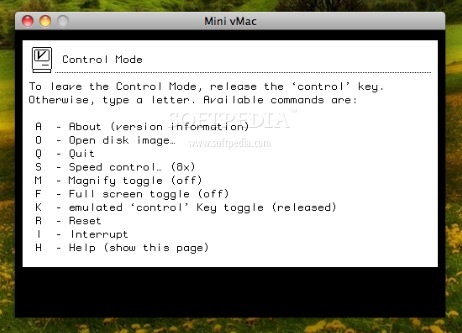


- #Mini vmac speed how to#
- #Mini vmac speed archive#
- #Mini vmac speed software#
- #Mini vmac speed free#
#Mini vmac speed how to#
To finish being able to compilefor all supported platform with one command, I next should figureout how to automate compiling command line tools for m68k.Perhaps by using, for now, the technique used for compilingMini vMac 3.5 for m68k, which is slower than current methods,but fast enough when not for the Variations Service.Ī Chinese translationfor the Mini vMac user interface has beenanonymously contributed. While doing this, I worked out how to automate compiling commandline tools using a networked virtual machine (in this case tocompile for Apple Silicon), like is done for theMini vMac Variations Service. The SigWrtTlcommand line tool now supports multiple platforms, as was donefor SigChkTl. So today’s Mini vMac 37.03beta no longer looks at the boot blocks, but only checks themaster directory block. (The -ndp option,which defaults to on.) The boot blocks of these System Softwareimages are garbage.
#Mini vmac speed software#
I noticed that some Apple System Software disk images I havefail the new test in Mini vMac 37 that is designed to protect filesthat aren’t actually Macintosh disk images by refusing to mountthem.

#Mini vmac speed archive#
Another approach would be to have to my tool forcreating a “.sit” archive file clear this area in itsoutput. It does not seem to be possible to clearjunk out of the “Reserved for system use” area of aresource fork without the operating system immediately puttingjunk back in. Except that they arenot reproducible builds yet. The MkKeysTlcommand line tool now supports multiple platforms, as was donefor SigChkTl and SigWrtTl.Ĭompiling command line tools for m68k and mppc targets is now automatedlike all the other supported platforms. The rest of this project - software for the early Macintosh, links to alternatives to Mini vMac, links to related forums, lists of books, and more.
#Mini vmac speed free#
The center of this project - a family of free and open source emulators that allow such software to be used on modern computers More The goal of the Gryphel Project is to help preserve software made forearly Macintosh computers, the computers that Apple sold from 1984 to1996 based upon Motorola’s 680x0 microprocessors.


 0 kommentar(er)
0 kommentar(er)
